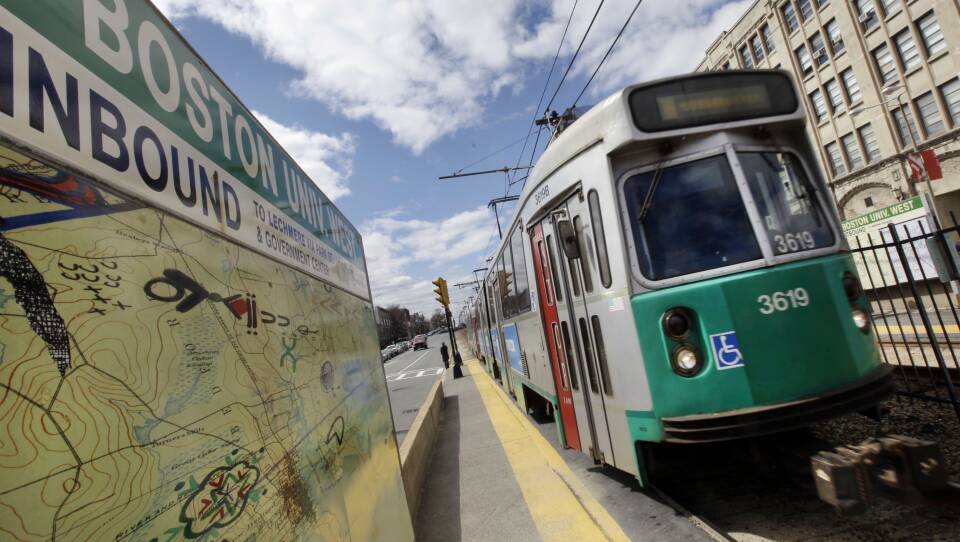"A long journey and steep mountain to climb" is how the chairman of the MBTA’s Fiscal Control Board, Joseph Aiello, described the effort to rebuild Boston’s mass transit system, which is the oldest in the nation and one that has been neglected for decades.
"This is an area in which the Commonwealth sat on its hands for far too many years, and we're all playing catch up and paying the price for it," Gov. Charlie Baker said in his Jan. 3 inaugural speech. "Over the course of the next five years, the T plans to spend over $8 billion on infrastructure ... This is more than twice what has ever been spent by the T in any five-year period of time."
The task of spending all that money now belongs to the MBTA’s new general manager, Steve Poftak. His top priority and toughest task will be implementing the plan to restore the vast transit network that carries more than half a million riders on one and a half million trips every day in and around Boston.
Read more: The Appointment Of A New MBTA GM Signals A Shift In Philosophy
So what is the $8 billion being spent on? Almost half will go towards improving reliability: $3.7 billion for new rapid transit cars and buses, along with new power and signal systems for all of the rail lines and the rebuilding of stations, bridges and tunnels. Another billion be spent on modernizing the Red and Orange Lines and making the Commuter Rail more reliable. And the remainder: $1.5 billion on expansion, specifically the Green Line extensions into Somerville and Medford.
Although the money may be there, getting it done is proving to be a significant challenge.
“There certainly is a tension in the impatience that we all have to put the money to use as quickly as possible, but we also want to make sure that we do it right," Aiello told WGBH News.
But so far, there has been little visible evidence of the investment, making nervous officials even more anxious and causing them to push to ramp up projects that will produce noticeable improvements in service and reliability faster.
Rick Dimino, president and CEO of the organization A Better City , which, according to their website, is a "group of business leaders united around a common goal — to enhance Boston and the region’s economic health, competitiveness, vibrancy, sustainability and quality of life," said he thinks the priorities are right but the T needs help to get work done.
“I'm not optimistic at the moment," Dimino said. "They've made some serious progress on trying to increase their pace of getting work out the door, but this year they're probably going to show that they're not going to keep pace with what their expectation was."
Aiello said the work is going slower than hoped because Boston's booming economy is making it difficult to find the human talent needed to manage the projects.
“We have to compete for people in the design and construction industry, which are particularly busy right now, so trying to attract the talent we need with the pay structure that is involved in working for the government we have has its limitations," Aiello said.
Dimino said that ultimately, the T may have to bring in more outside professional help like they did with the Green Line extension.
"It may be more expensive, but at least the work gets done," Dimino said.
But even if those outside professionals are found and the spending goals are met, the reality is that it will take billions more and many years to make significant improvements in Boston's mass transit system. Aiello said that those using the T will have to be patient.
"We're on a long journey. As the governor has said, as the secretary has said, it's going to take us 15 years to burn off the backlog of state of good repair," Aiello said. And that means just repairing what we have now.
That may not be what Boston's battle-weary commuters want to hear, but it is the reality that Steve Poftak and we all face as he takes on the daunting task of rebuilding the MBTA.





